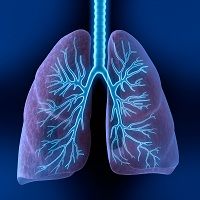Article
New COPD Target Could Lead to Innovative Treatments
Author(s):
Using an innovative technique, German researchers highlighted a new pathway they believe could provide updated chronic obstructive pulmonary disease (COPD) treatments.

Using an innovative technique, German researchers highlighted a new pathway they believe could provide updated chronic obstructive pulmonary disease (COPD) treatments.
Published in the European Respiratory Journal, their study used 3D human lung tissue cultures (3D-LTCs) to show how Wnt/β-catenin signalling pathway activation could repair COPD patients’ lung tissues.
The Wnt/β-catenin signalling pathway, one of many pathways tasked with transducing signals for cells that respond to external stimuli, is sparked by a key mediator protein called Wnt. Also relevant to the pathway’s name, Wnt also works with the β-catenin protein during transduction, a press release pointed out.
Researchers were able to see how the pathway was able to heal damaged lung tissues by using 3D with high spatio-temporal resolution, a process which includes quantitative polymerase chain reaction (PCR), Western blotting, enzyme-linked immunosorbent assay (ELISA), immunohistological assessment, and four-dimensional confocal live tissue imaging.
“Previously, studies largely relied on animal models, and cell cultures in the petri dish were limited to two dimensions and individual time points,” Franziska Uhl, a doctoral student at the Comprehensive Pneumology Center of Helmholtz Zentrum München, explained in the statement.
With this new method, the authors claimed they can now gauge how well targeted treatments are working on their COPD patients and could influence how precision medicine is practiced. Moreover, the discovery of the Wnt/β-catenin signalling pathway could spell worthwhile COPD therapies.
“We hope in this way to develop long-term treatments that induce lung tissue repair in the patients,” lead author Melanie Königshoff explained.





